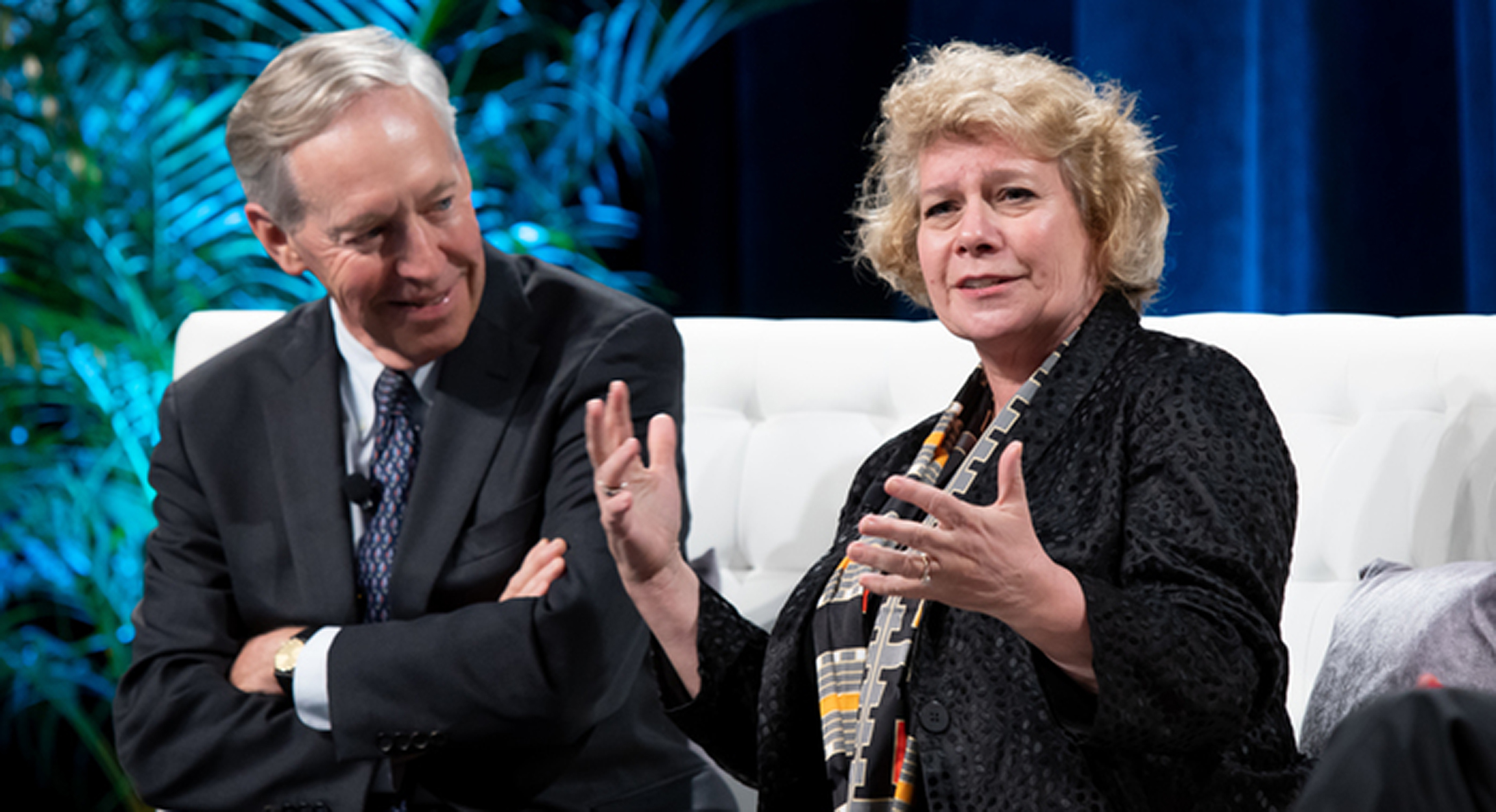
Remondis’ gift tackles Alzheimer’s from many angles
“We are grateful for the Remondis’ commitment to support multiple approaches to Alzheimer’s research, which increases their philanthropy’s life-changing potential.”
—REISA A. SPERLING, MD, MMSC
Alzheimer’s disease affects people differently based on their gender, age, and race. At the Brigham, neuroscientists with expertise across many disciplines, including biology, genetics, psychiatry, and other fields, are working to untangle these complexities and ultimately find effective treatments for the neurodegenerative disease.
Longtime Brigham benefactors John and Dorothy Remondi are boosting these efforts with a gift of $1 million. The couple’s past philanthropy to the hospital has aided studies by renowned Alzheimer’s experts Dennis J. Selkoe, MD, co-director of the Ann Romney Center for Neurologic Diseases, and Reisa A. Sperling, MD, MMSc, director of the Center for Alzheimer Research and Treatment. The Remondis’ new contribution will aid three researchers mentored by Selkoe and Sperling.
“We are fortunate to have a deep bench of world-class researchers at the Brigham,” says Selkoe. “John and Dottie’s generosity will invigorate the pace of our breakthroughs in key areas led by three outstanding investigators.”
Cognitive neuroscientist Rachel Buckley, PhD, will explore whether healthy older women show faster changes in tau protein accumulation in the brain than men and how much this might impact future memory performance. By analyzing patient data across multiple large-scale studies—including the Harvard Brain Aging Study and Framingham Heart Study—Buckley aims to pinpoint the biological mechanisms that make women more vulnerable to cognitive decline.
Lei Liu, MD, PhD, a neuroscientist focused on molecular biology, molecular genetics, and protein chemistry, will develop a blood-based biomarker in preclinical Alzheimer’s disease that could be paired with advanced brain imaging. These tools could ultimately help identify indicators of the disease, allowing for earlier interventions and more effective treatments.
Clinical neuropsychologist Dorene Rentz, PsyD, will foster partnerships with communities of color to improve the diversity of participants enrolled in the Brigham’s Alzheimer prevention trials. She is creating large registries of diverse participants to help advance knowledge of the disease’s biomarkers and enhance rapid screening and enrollment of diverse participants.
“No one researcher can confront Alzheimer’s disease alone,” notes Sperling. “We are grateful for the Remondis’ commitment to support multiple approaches to Alzheimer’s research, which increases their philanthropy’s life-changing potential.”